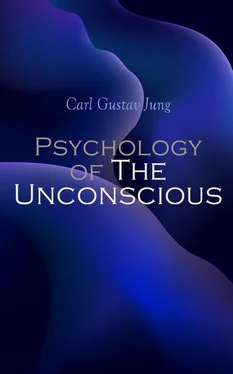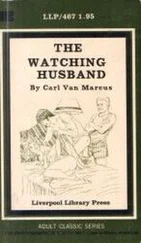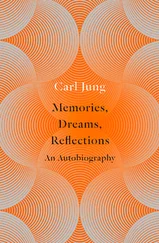“Roxane, adieu, je vais mourir!
C’est pour ce soir, je crois, ma bien-aimée!
J’ai l’âme lourde encore d’amour inexprimé.
Et je meurs! Jamais plus, jamais mes yeux grisés,
Mes regards dont c’était les frémissantes fêtes,
Ne baiseront au vol les gestes que vous faites;
J’en revois un petit qui vous est familier
Pour toucher votre front et je voudrais crier—.
Et je crie:
Adieu!—Ma chère, ma chérie,
Mon trésor—mon amour!
Mon coeur ne vous quitta jamais une seconde,
Et je suis et je serai jusque dans l’autre monde
Celui qui vous aime sans mesure, celui—”
Whereupon Roxane recognizes in him the real loved one. It is already too late; death comes; and in agonized delirium, Cyrano raises himself, and draws his sword:
“Je crois, qu’elle regarde....
Qu’elle ose regarder mon nez, la camarde!
(Il lève son épée.)
Que dites-vous?... C’est inutile!
Je le sais!
Mais on ne se bat pas dans l’espoir du succès!
Non! Non! C’est bien plus beau, lorsque c’est inutile!
—Qu’est-ce que c’est que tous ceux-là?—Vous êtes mille?
Ah! je vous reconnais, tous mes vieux ennemis!
Le mensonge!
(Il frappe de son épée le vide.)
Tiens, tiens, ha! ha! les Compromis,
Les Préjugés, les Lâchetés!...
(Il frappe.)
Que je pactise?
Jamais, jamais!—Ah, te voilà, toi, la Sottise!
—Je sais bien qu’à la fin vous me mettrez à bas;
N’importe: je me bats! je me bats! je me bats!
Oui, vous m’arrachez tout, le laurier et la rose!
Arrachez! Il y a malgré vous quelque chose
Que j’emporte, et ce soir, quand j’entrerai chez Dieu,
Mon salut balaiera largement le seuil bleu.
Quelque chose que sans un pli, sans une tache,
J’emporte malgré vous, et c’est—mon panache.”
Cyrano, who under the hateful exterior of his body hid a soul so much more beautiful, is a yearner and one misunderstood, and his last triumph is that he departs, at least, with a clean shield—“Sans un pli et sans une tache.” The identification of the author with the dying Christian, who in himself is a figure but little impressive and sympathetic, expresses clearly that a sudden end is destined for her love just as for Christian’s love. The tragic intermezzo with Christian, however, is played as we have seen upon a background of much wider significance, viz., the misunderstood love of Cyrano for Roxane. Therefore, the identification with Christian has only the significance of a substitute memory (“deckerinnerung”), and is really intended for Cyrano. That this is just what we might expect will be seen in the further course of our analysis.
Besides this story of identification with Christian, there follows as a further example an extraordinarily plastic memory of the sea, evoked by the sight of a photograph of a steamboat on the high seas. (“Je sentis les pulsations des machines, le soulèvement des vagues, le balancement du navire.”)
We may mention here the supposition that there are connected with sea journeys particularly impressive and strong memories which penetrate deeply into the soul and give an especially strong character to the surface memories through unconscious harmony. To what extent the memories assumed here agree with the above mentioned problem we shall see in the following pages.
This example, following at this time, is singular: Once, while in bathing, Miss Miller wound a towel around her hair, in order to protect it from a wetting. At the same moment she had the following strong impression:
“Il me sembla que j’étais sur un piédestal, une véritable statue égyptienne, avec tous ses détails: membres raides, un pied en avant, la main tenant des insignes,” and so on.
Miss Miller identified herself, therefore, with an Egyptian statue, and naturally the foundation for this was a subjective pretension. That is to say, “I am like an Egyptian statue, just as stiff, wooden, sublime and impassive,” qualities for which the Egyptian statue is proverbial. One does not make such an assertion to one’s self without an inner compulsion, and the correct formula might just as well be, “as stiff, wooden, etc., as an Egyptian statue I might indeed be.” The sight of one’s own unclothed body in a bath has undeniable effects for the phantasy, which can be set at rest by the above formula. [58]
The example which follows this, emphasizes the author’s personal influence upon an artist:
“J’ai réussi à lui faire rendre des paysages, comme ceux du lac Léman, où il n’a jamais été, et il prétendait que je pouvais lui faire rendre des choses qu’il n’avait jamais vues, et lui donner la sensation d’une atmosphère ambiante qu’il n’avait jamais sentie; bref que je me servais de lui comme lui-même se servait de son crayon, c’est à dire comme d’un simple instrument.”
This observation stands in abrupt contrast to the phantasy of the Egyptian statue. Miss Miller had here the unspoken need of emphasizing her almost magic effect upon another person. This could not have happened, either, without an unconscious need, which is particularly felt by one who does not often succeed in making an emotional impression upon a fellow being.
With that, the list of examples which are to picture Miss Miller’s autosuggestibility and suggestive effect, is exhausted. In this respect, the examples are neither especially striking nor interesting. From an analytical viewpoint, on the contrary, they are much more important, since they afford us a glance into the soul of the writer. Ferenczi [59]has taught us in an excellent work what is to be thought about suggestibility, that is to say, that these phenomena win new aspects in the light of the Freudian libido theory, in so much as their effects become clear through “Libido-besetzungen.” This was already indicated above in the discussion of the examples, and in the greatest detail regarding the identification with Christian. The identification becomes effective by its receiving an influx of energy from the strongly accentuated thought and emotional feeling underlying the Christian motif. Just the reverse is the suggestive effect of the individual in an especial capacity for concentrating interest (that is to say, libido) upon another person, by which the other is unconsciously compelled to reaction (the same or opposed). The majority of the examples concern cases where Miss Miller is put under the effects of suggestion; that is to say, when the libido has spontaneously gained possession of certain impressions, and this is impossible if the libido is dammed up to an unusual degree by the lack of application to reality. Miss Miller’s observations about suggestibility inform us, therefore, of the fact that the author is pleased to tell us in her following phantasies something of the history of her love.
CHAPTER III
THE HYMN OF CREATION
Table of Contents
The second chapter in Miss Miller’s work is entitled, “Gloire à Dieu. Poème onirique.”
When twenty years of age, Miss Miller took a long journey through Europe. We leave the description of it to her:
“After a long and rough journey from New York to Stockholm, from there to Petersburg and Odessa, I found it a true pleasure [60]to leave the world of inhabited cities—and to enter the world of waves, sky and silence—I stayed hours long on deck to dream, stretched out in a reclining chair. The histories, legends and myths of the different countries which I saw in the distance, came back to me indistinctly blended together in a sort of luminous mist, in which things lost their reality, while the dreams and thoughts alone took on somewhat the appearance of reality. At first, I even avoided all company and kept to myself, lost wholly in my dreams, where all that I knew of great, beautiful and good came back into my consciousness with new strength and new life. I also employed a great part of my time writing to my distant friends, reading and sketching out short poems about the regions visited. Some of these poems were of a very serious character.”
Читать дальше












